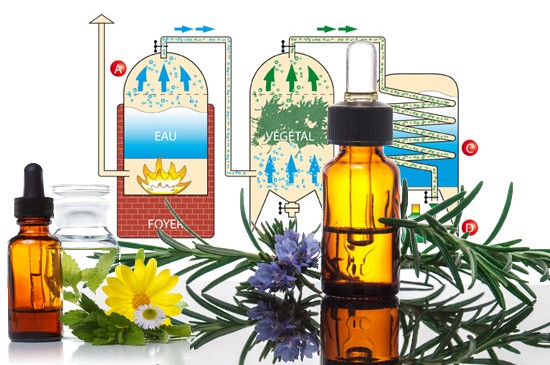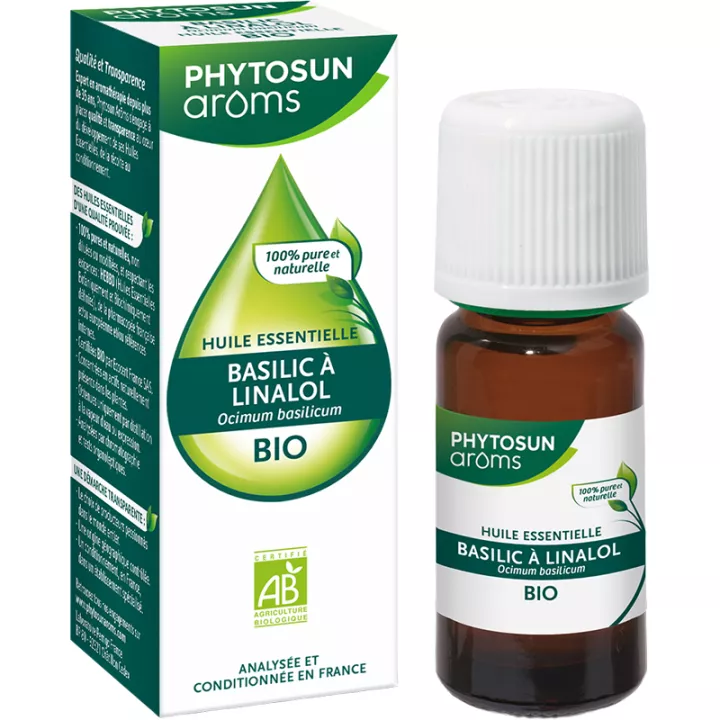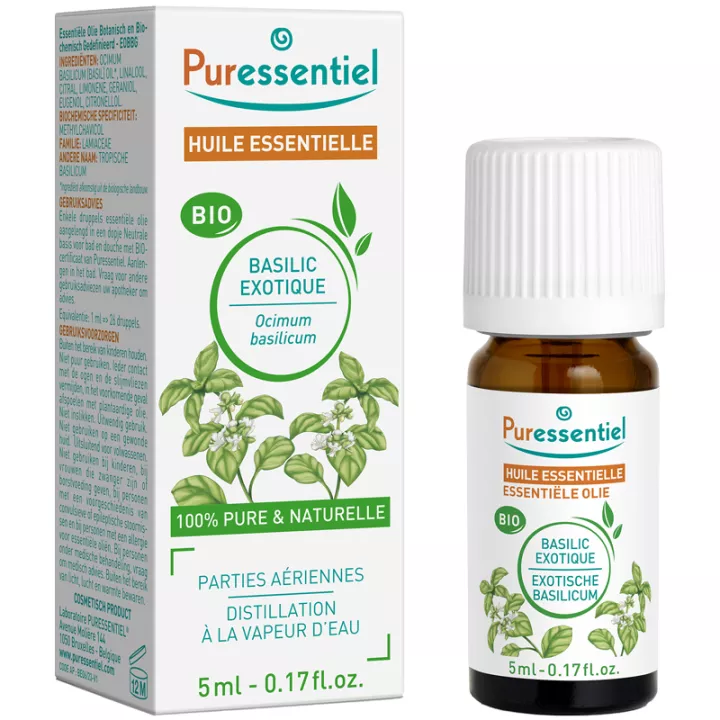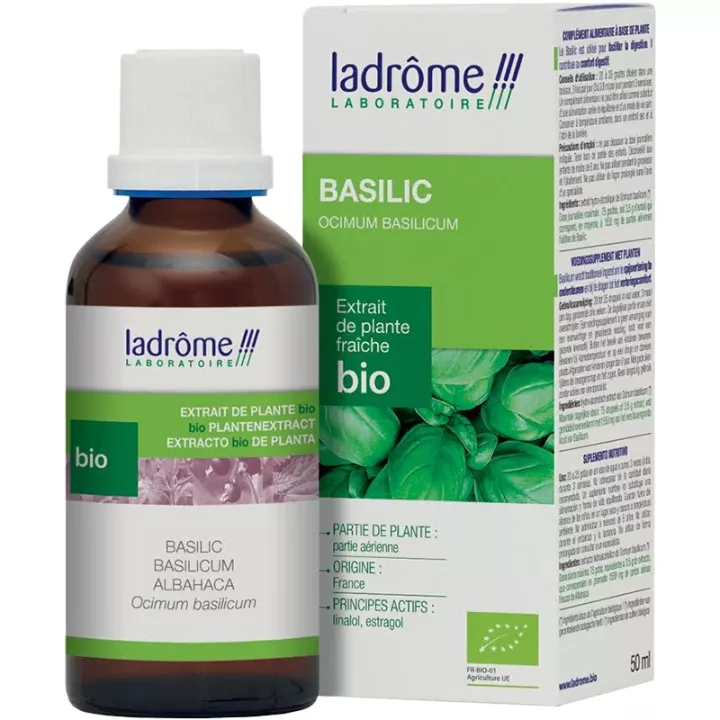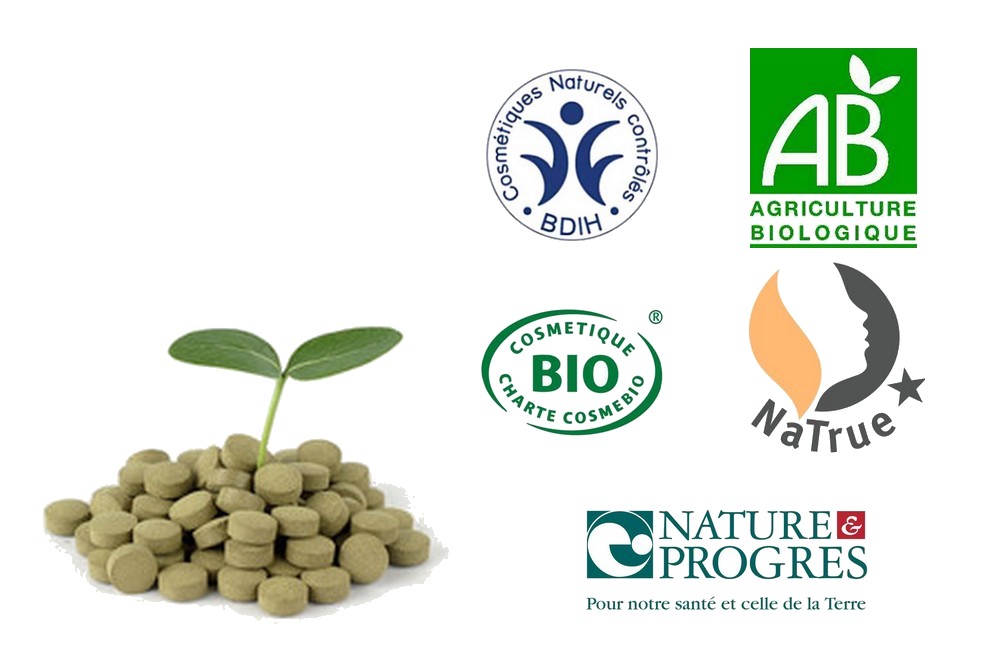What is the purpose of Phytosun Aroms Organic linalool basil essential oil?
Phytosun Aromsorganic linalool basil essential oil is a natural treasure with multiple benefits. This annual herb, 20 to 50 cm high, is characterized by its twiggy stems and oval leaves, which are bright dark green and sometimes wine-red due to anthocyanins. Its yellowish-white to reddish flowers are grouped in whorls of six, creating a fascinating natural spectacle.
Cultivated varieties include tall green basil, often called pistou or Genovese basil, purple basil, lemon basil and Thai basil. Basil, known as the pistou of southerners and the key ingredient in Italian pesto, originated in Asia. The Greeks discovered it thanks to Alexander the Great and, in medieval Europe, it was used in witchcraft plants.
Basil essential oil has anthelmintic, insecticidal, antispasmodic and neuroregulatory properties. It is also an antioxidant, venous decongestant, prostatic decongestant, anti-infectious, antifungal, digestive and hepatobiliary tonic. It normalizes intestinal flora and relieves pain thanks to its anti-inflammatory and analgesic properties.
The benefits ofbasil essential oil are many and varied. It is mainly used for its nerve-balancing effects, thanks to its high concentration of linalool, a molecule with anxiolytic properties. Linalool acts as an antagonist to glutamate, an excitatory neuromediator, preventing activation of specific glutamate receptors.
Basil essential oil is also a powerful antibacterial agent. Studies have demonstrated its efficacy against several strains of bacteria, including S. aureus, E. faecalis, L. monocytogenes, E. aerogenes, E. coli, S. enteris and S. typhimurium. This antibacterial activity is mainly due to the presence of linalool and eugenol.
Basil essential oil also has antifungal properties thanks to its linalool and eugenol compounds. Although these components are more effective individually, their synergy in the essential oil enhances their antifungal action. Furthermore, linalool and eugenol are recognized for their anti-inflammatory and analgesic effects, inhibiting the transmission of the pain message and reducing the production of pro-inflammatory cytokines.
Basil essential oil is also used for its antispasmodic properties, particularly for digestive disorders. Estragole, although present in small quantities in this chemotype, acts at gastric and intestinal level to block transmission of the nervous message responsible for smooth muscle contractions.
The aromatherapy laboratory Phytosun Aroms also offersLaurier Noble essential oil at the best price in our online pharmacy.
How to use this essential oil
For adults, take 2 drops twice a day on a Phytosun Arôms neutral tablet. For children, the dose is reduced to 1 drop, twice a day, also on a Phytosun Arôms neutral tablet. For all other uses, ask your pharmacist for advice.
To soothe aerophagia, dilute 20%basil essential oil in black cumin vegetable oil and massage into the stomach. Orally, take 2 drops of essential oil in honey, olive oil or on cane sugar under the tongue after a meal.
For a venous decongestant action, as in the case of venous circulatory disorders (sensation of heavy legs), dilute 7%basil essential oil in calophylla vegetable oil and massage your legs with this mixture twice a day for 10 days.
Give your opinion on the recommendations for use and dosage of Phytosun Aroms Organic Basil essential oil with our partner Verified opinions after your purchase.
Precautions for use
Linalol basil essential oil is not recommended for pregnant or breast-feeding women. Do not use this essential oil pure, as it is dermocaustic and must always be diluted. This product is intended for adults only, and should be kept out of the reach of young children.
It is not a substitute for a balanced diet, and the recommended dosage must not be exceeded. Store essential oil away from heat and light.
Warning: Essential oils have an impressive reactive power. Scrupulously respect the prescribed doses, which are the fruit of long experience by researchers. Excessive use will have no therapeutic benefit, and may, on the contrary, cause undesirable effects.
Ask a health professional for advice. Do not exceed the recommended daily dose. To be taken as part of a varied, balanced diet and healthy lifestyle. Keep out of reach of young children. Not to be used by children under 7 years of age. Do not use for prolonged periods (2 weeks maximum). Not for use by pregnant or breast-feeding women, people with a history of epilepsy or convulsions, or those hypersensitive to essential oils. Not recommended for asthmatics. Not recommended if taking anticoagulants or platelet aggregation inhibitors. Never take undiluted by mouth. Never take more than 2 drops per dose, nor more than 8 drops per day of essential oils. Store in a well-stoppered bottle away from light and heat.
What is its composition?
Basil essential oil Ocimum basilicum Bio Phytosun Aroms
Aromatic molecules: Linalool
Distilled part: Flowering top
Biochemical compounds: Phenol methyl ether: chavicol ME or majority methyl chavicol, cis-anethole and trans-anethole, monoterpene alcohols: linalool (12-14% and up to 80% in Mediterranean chemotypes), fenchol, terpinene-1-ol-4, alpha-terpineol, citronnellol, terpene esters: fenchyl acetate and linalyl acetate, phenols: eugenol (1%), eugenol methyl ether, ketones: (1%): 3-octanone, camphor, oxides: 1,8-cineole, trans-ocymene oxide.
Analysis of the essential oil of two varieties of Ocimum basilicum var. purpurascens and var. dianatnejadii from Iran (between 0.6 and 1.1% essential oil) enabled us to separate 49 compounds (representing 97 to 99.7% of the essential oil). The main compounds are aromatics (mainly methylchavicol, from 34 to 49%) and oxygenated monoterpenes (represented by linalool, from 14 to 39%), whatever the variety. Eugenol is present at less than 1%.
Presentation
5 mL dropper bottle.
